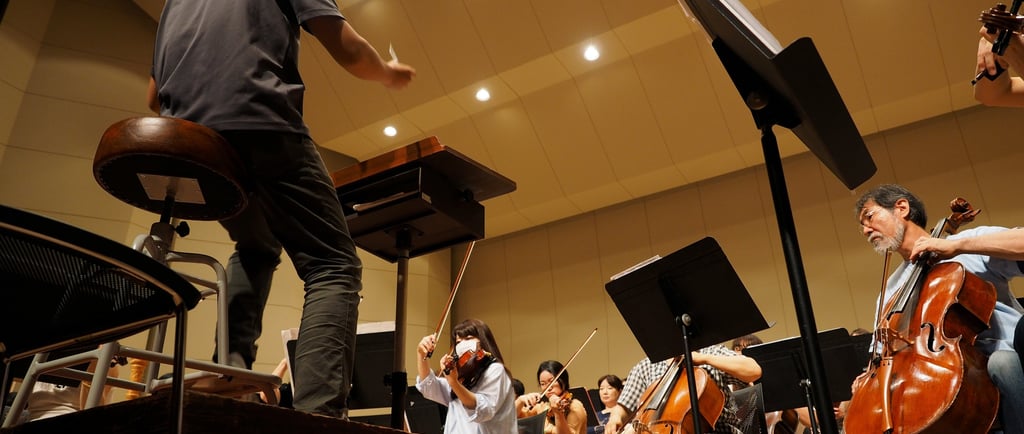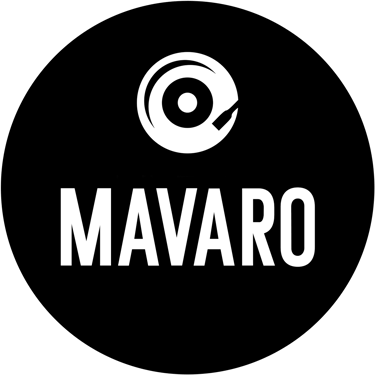Film Score Cost for Short Films: How Much Does Original Music Cost in 2025?
Wondering how much to budget for music in your short film? Learn what affects the cost of an original score, explore 2025 price ranges, and see how custom music compares to royalty-free tracks.


If you’re producing a short film, documentary, or branded story, a common question is: 'How much should I budget for an original film score?' The answer, as with most things in film, is: it depends. This article breaks down the key factors influencing film score costs, typical price ranges for custom film music, and how original scoring compares with royalty-free music libraries — so you can make the right choice for your story and budget.
We’ll break down what affects the cost of a custom score, offer ballpark figures for different budget levels, and help you understand when original music is worth the investment (and when it’s not). Let’s dive in.
1. Why music matters — even for short films
Music isn’t just a “nice to have.” It’s one of the most powerful storytelling tools in your film. It sets the tone, builds emotion, and helps the audience connect to the characters and pacing of each scene.
This is especially important in short films, where you have limited time to make an emotional impact. A well-crafted score can elevate a short, making it feel more professional and helping it stand out in festivals.
2. What Affects the Cost of Original Music
There’s no universal price tag, but a few key factors play a big role in determining cost:
• Length of the score: More music means more writing, recording, editing, and mixing time.
• Complexity and style: A minimal ambient score costs less than a large orchestral soundtrack with dozens of cues, motifs, and tempo shifts.
• Production quality: Do you want high-end sample libraries, live instruments, or full orchestral recordings?
• Delivering in surround (5.1) or immersive formats like Dolby Atmos usually adds time and cost — both in mixing and mastering.
• Alternate versions, stems, and deliverables for trailers or marketing may add to the final budget — especially if prepared as a separate pass after the main score.
• Prep and administrative time — such as research time, cue sheet prep, scheduling, or coordinating post-production delivery — can also affect the cost, especially on larger projects.
• Composer’s experience and credits: The fee for a professional film composer often reflects years of training, equipment investment, and a proven track record. While a student or entry-level composer may charge less, an experienced professional brings efficiency, artistic depth, and reliability.
• Revisions and deadlines: Tight turnarounds or multiple revision rounds may increase the cost.
• Rights and licensing: Will you need full buyout rights? Do you also need to license tracks not part of the score? International use? These considerations also affect pricing.
Another aspect that can influence the cost is the size of the music department. The composer often serves as Head of Department (HoD) for music — and may need to coordinate with:
• Orchestrators, copyists, and conductors, especially if live players are involved.
• Recording and mixing engineers for session logistics and final audio quality.
• Live musicians, whose fees can vary significantly.
3. Royalty-Free Library Music vs Original Score
Should you go with a royalty-free track from a music library, or invest in a custom score? Here’s a breakdown of how they compare:
💸 Price
Royalty-free music: Low cost — usually between €20–€200 per track
Original score: Medium to high cost — typically €300–€6000+, depending on scope
🧩 Tailored to your film
Royalty-free: Generic and one-size-fits-all
Original score: Crafted specifically for your story and scenes
🔐 Exclusivity
Royalty-free: Non-exclusive — other filmmakers can use the same track
Original score: Usually exclusive or full buyout rights
🎬 Emotional impact
Royalty-free: Can vary in effect and fit
Original score: High — written to sync perfectly with your edit and emotions
🧰 Flexibility and sync
Royalty-free: Limited ability to edit or adapt the music
Original score: Fully editable and precisely synced to picture
🤝 Workflow
Royalty-free: Plug-and-play, quick but impersonal
Original score: Collaborative process — including spotting sessions and feedback rounds
In short: Royalty-free tracks can work well for temp music, internal videos, or low-priority projects. But if you’re aiming for emotional impact, festival success, or long-term value, a custom score is almost always the better investment.
4. Typical Budget Ranges (2025)
To give you some examples, here are some ballpark budget tiers with example scenarios based on current industry trends:
Entry-Level ($0–$500)
• Students or Entry-level composer
• Score based entirely on virtual instruments
• 2–5 minutes of music
• Extra revisions might not be included
Ideal for student films or personal passion projects.
Standard Indie ($600–$3000)
• Emerging professional composer
• Tailored themes and scoring
• 5–15 minutes of music
• Professional workflow and communication
• Includes spotting session, mixing/mastering, and reasonable revisions
Ideal for festival shorts and professional reels.
High-End ($3000–$6000+)
• Experienced, in-demand composer
• Hybrid or live recording if needed
• Multiple cues, alternate versions, stems
• Includes spotting, mixing/mastering, licensing
• Close artistic collaboration throughout
• Higher budgets allow for more session players, better recordings, and more refined mixing.
Ideal for award-caliber shorts, funded productions, and branded storytelling.
5. How Much Should You Budget?
There’s no fixed rules — but here are some common industry practices:
• For shorts and indie films, music usually takes up 5–15% of the total budget.
• For mid-budget productions (e.g., $100k–$1M), 2–10% is a common range.
• Major productions often allocate 1–5% of the budget to music.
• Top-tier blockbuster productions may still dedicate $300k–$2M+ to scoring, depending on the composer, licensing needs, or high-profile artists involved. At that scale, music typically accounts for no more than 2% of the total budget.
Original songs by major artists can cost $300k–$1 million — especially if the artist also performs or appears in the film.
Final Thoughts
Music can be a make-or-break element for your short film. While budget is always a factor, don’t underestimate the impact of a score that’s tailored to your characters, your pacing, and your story’s emotional arc.
Whether you spend $50 or $50k, what really matters is how well the music fits your film.
Let’s talk
If you’re working on a short film and curious about film scoring options or original music pricing — feel free to reach out.
Even if you’re still budgeting or in the early planning stages, I’m happy to chat and explore how a custom film score can elevate your project. Let's discuss your film music budget and creative vision.
✉️ Contact me
Marco Valerio Romano
⸻
You might also like:
What Makes a Great Film Score?
How to Choose a Composer for Your Independent Film
How and Where to Find a Composer for Your Indie Film
When Should You Hire a Composer for Your Film?
How Long Does It Take to Score a Film?
Can You Use That Music in Your Film? (Even If It’s Just a Cover or You Edited It)
How to Give the Composer Directions for Your Original Film Score
How to Export Files for the Composer and Audio Post-Production

